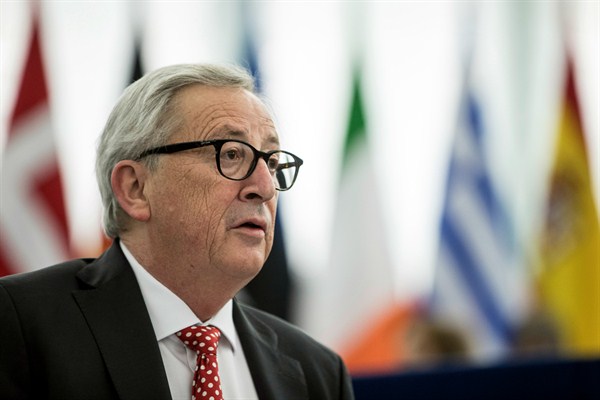MADRID—Europeans will elect a new European Parliament in May, but how many of them really know what it does? The continued lack of common knowledge across Europe about the European Union and how its byzantine governance institutions actually function is a challenge for political parties and their candidates. It is why these races have typically revolved around domestic issues. This time, however, populist and euroskeptic parties are bringing some EU issues into the debate, such as migration, but as a way to criticize the EU, not constructively engage with it. They have a receptive audience, as they are poised to win more than a third of European Parliament seats.
Across the continent, elections for the EU’s only directly elected institution will still mostly play out as referendums on national governments and domestic issues, rather than big picture debates about Europe and policies in Brussels. “There is no European election; there are 28 elections,” says Diego Lopez Garrido, the former Spanish secretary of state for the EU and now the executive vice president of the think tank Fundación Alternativas, in Madrid.
This dynamic is nothing new, and it has continued to depress voter turnout across Europe, which has waned since the first European Parliament election in 1979. Turnout has fallen from around 62 percent since then to around 43 percent in the past two elections, a figure similar to turnout in midterm elections in the United States. The U.S. midterms are usually low turnout affairs in no small part because the presidency isn’t in play. But the European Parliament election does lead to the selection of an executive of sorts: the European Commission, a college of commissioners from each of the 28 member countries led by a president, currently Jean-Claude Juncker.

